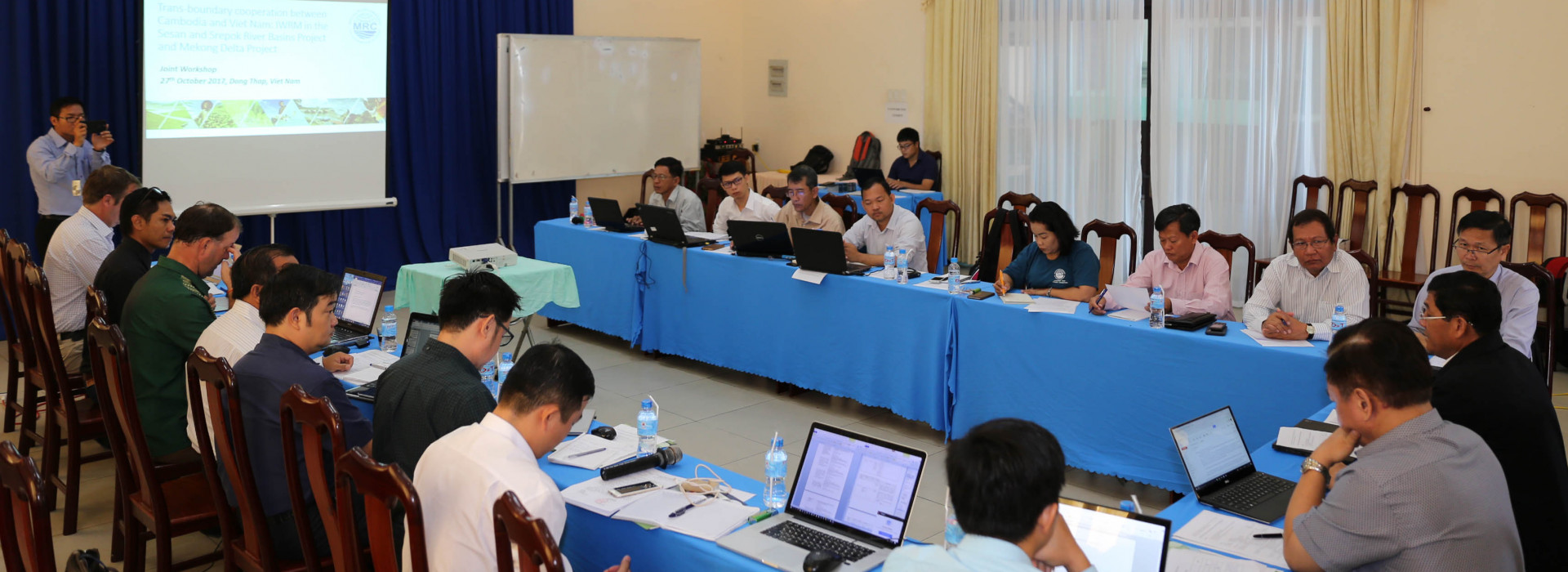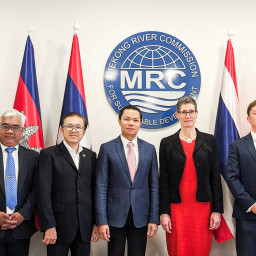Ideas for Bilateral Provincial Cooperation Exchanged to Solve Transboundary Water Issues
Cao Lanh, Viet Nam, 27 October 2017 – Joint research and training, hydro-meteorological data exchange and new bilateral working groups between border provinces of Cambodia and Viet Nam are some of the ideas water specialists from the two countries shared during a workshop held in Cao Lanh to solve long-standing transboundary water issues.
About 15 specialists joined the workshop held on 27 October to discuss how the two countries could develop better water cooperation at a provincial level to address transboundary water management issues in the Mekong Delta and the Sesan – Srepok river basins. The two countries have engaged in two bilateral water resources management projects in both geographic areas, in order to establish new mechanisms to solve cross-border water issues, in the face of impacts of hydro-development, intensive irrigation and climate change.
“We have made important achievements under the transboundary projects. We now have identified priority issues within Viet Nam and Cambodia, and challenges to share benefits from the Mekong’s valuable resources at the provincial level,” said Director-General of the Vietnamese National Mekong Committee Le Duc Trung during the workshop’s opening remarks. “I encourage both Cambodian and Vietnamese participants to have candid, constructive discussions on potential solutions so that we could report to our respective governments for further considerations.”
The two countries have named six priority issues in the Mekong Delta, including lack of coordinated flood management planning, while the Sesan – Srepok basin has identified six issues as priority, including limited hydro-meteorological data and basin-wide assessment of impacts.
The workshop was held to brainstorm ideas on transboundary cooperation schemes at the provincial level to address some of those identified issues, taking into consideration what water specialists observed on the ground during the preceding field visits that took place in the Mekong Delta from 23 to 26 October.
During the workshop, the specialists suggested that existing bilateral dialogue at the provincial level needs to be strengthened with new working groups focusing on shared water issues. They also discussed that sharing of various hydro-meteorological data such as river flow rates, water quality and sediment would help enable more coordinated planning of flood control measures. It was also suggested that the two countries conduct joint studies to address common transboundary issues, which could, for example, help mitigate adverse impacts of hydro-development.
“This workshop was very useful for the two countries to develop further cooperation mechanisms to address the transboundary issues at the provincial level,” said Kol Vathana, Deputy Secretary General of the Cambodian National Mekong Committee, who led the Cambodian delegation. “This is a process to understand the real issues and discuss potential solutions, in particular how to solve transboundary issues so that people on both sides would benefit.”
Results of the workshop will form a basis of a joint action plan for the two countries to expand transboundary cooperation to address specific issues identified for those project sites. Action plans are expected to be created by the end of 2018.
The Mekong Delta and Sesan - Srepok projects are parts of the initiatives under the Mekong River Commission’s Integrated Water Resources Management Project that promotes cross-border cooperation at both basin-wide and sub-basin levels through multi-sectoral planning and coordinated management of water resources. These projects are financed by the World Bank.
Click here for a series of photos from the field visits.





